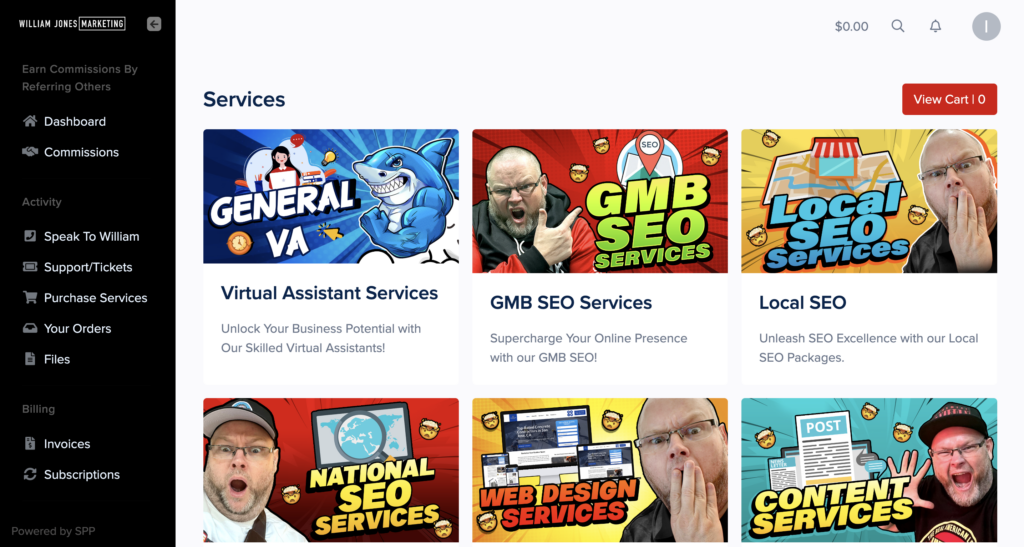
In the ever-evolving landscape of online business, mastering the art of search engine optimization (SEO) is paramount to achieving success. Whether you’re a seasoned entrepreneur or just starting your digital journey, understanding the basics of SEO can significantly impact your online presence and bottom line. In this blog post, we’ll delve into fundamental SEO strategies that every website owner should implement to enhance visibility, attract organic traffic, and ultimately, boost conversions.From optimizing website structure and content to leveraging keywords effectively, these strategies serve as the foundation for a robust SEO framework. By following these tried-and-tested techniques, you’ll not only improve your website’s rankings on search engine results pages (SERPs) but also create a user-friendly experience for your audience. Join us as we explore the essential principles of SEO and unlock the potential for online success. Whether you’re aiming to increase brand awareness, drive sales, or simply expand your digital footprint, mastering these basic SEO strategies is your first step towards achieving your goals.
The Role of Website Structure in SEO Success
When it comes to search engine optimization (SEO), many people focus solely on keywords and content quality. However, the structure of your website plays a crucial role in determining its search engine rankings as well. A well-organized and user-friendly website structure not only improves the user experience but also makes it easier for search engines to crawl and index your site. In this guide, we’ll delve into the importance of website structure for SEO success and provide practical tips for optimizing your site’s structure to enhance its visibility and ranking in search results.
Organizing Your Site for User Experience
Emphasize the connection between website structure and user experience. Explain how a clear and intuitive site structure makes it easier for visitors to navigate your site, find relevant information, and complete desired actions, such as making a purchase or contacting you.
Creating a Logical Hierarchy with Categories and Subcategories
Guide readers through the process of organizing their website’s content into categories and subcategories. Explain how to create a logical hierarchy that reflects the topics and themes of their content, making it easier for both users and search engines to understand.
Optimizing URL Structure for SEO
Discuss the importance of optimizing URL structure for SEO purposes. Provide tips for creating descriptive, keyword-rich URLs that accurately reflect the content of each page and are easy for both users and search engines to interpret.
Implementing Internal Linking Strategies
Highlight the significance of internal linking for website structure and SEO. Explain how internal links help distribute link equity throughout your site, establish topical relevance, and guide users to related content. Offer best practices for strategically placing internal links within your content.
Improving Site Speed and Performance
Address the impact of site speed and performance on both user experience and SEO. Provide tips for optimizing website performance, such as reducing page load times, minimizing server response times, and optimizing images and code.
Mastering Off-Page SEO: Building Quality Backlinks
One of the most potent elements of off-page SEO is building quality backlinks. Backlinks, also known as inbound links or external links, are hyperlinks from other websites that direct users to your site. Search engines like Google view backlinks as signals of trust and authority, and sites with a robust backlink profile often rank higher in search results. However, not all backlinks are created equal. Building quality backlinks from authoritative and relevant sources is essential for off-page SEO success. In this guide, we’ll delve into the art of mastering off-page SEO through the strategic acquisition of quality backlinks.
Differentiating Between Quality and Quantity
Dive deeper into the concept of quality backlinks versus low-quality ones. Explain that while a high volume of backlinks may seem beneficial, quality is far more important. Quality backlinks come from reputable, relevant, and authoritative websites within your industry or niche.
Identifying Quality Backlink Opportunities
Guide readers through the process of identifying potential sources for quality backlinks. This may include industry-specific directories, authoritative blogs, reputable news sites, and influencer websites. Encourage readers to prioritize relevance and authority when seeking backlink opportunities.
Creating Link-Worthy Content
Highlight the importance of creating valuable, link-worthy content to attract backlinks naturally. Discuss various types of content that tend to earn backlinks, such as comprehensive guides, original research, infographics, and multimedia content. Emphasize the need for content that provides unique insights or solves specific problems.
Outreach Strategies for Building Backlinks
Provide actionable tips for outreach outreach to website owners, bloggers, journalists, and influencers to request backlinks. Encourage personalized and targeted outreach emails that clearly articulate the value of your content and how it benefits their audience.
Utilizing Social Media for Backlink Acquisition
Explore the role of social media platforms in backlink building. Discuss strategies for sharing content on social media to increase its visibility and attract attention from potential linkers. Encourage engagement and relationship-building with influencers and industry thought leaders on social media platforms.
Mastering Off-Page SEO: Building Quality Backlinks
Off-page SEO, particularly link building, plays a crucial role in boosting your website’s authority and search engine rankings. Quality backlinks from reputable websites signal to search engines that your content is valuable and trustworthy. Here’s how to master the art of building quality backlinks. Source : privateview18.com
- Content is King: Creating high-quality, shareable content is the foundation of successful link building. Focus on producing content that provides value to your audience and naturally attracts backlinks.
- Strategic Outreach: Reach out to relevant websites and influencers in your industry to request backlinks. Personalize your outreach emails and clearly explain why your content would be valuable to their audience.
- Guest Blogging: Writing guest posts for authoritative websites in your niche is an effective way to earn backlinks. Ensure that your guest posts are well-written, informative, and relevant to the host site’s audience.
- Utilize Social Media: Share your content on social media platforms to increase its visibility and encourage others to link back to it. Engage with your followers and participate in relevant conversations to expand your reach.
Mastering off-page SEO and building quality backlinks requires time, effort, and strategic planning.
Conclusion
At Rank Fortress, we recognize the pivotal role of basic SEO strategies in achieving online success. By implementing these strategies effectively, we enhance our visibility and accessibility to our target audience, thereby driving traffic and maximizing our online presence. Through meticulous keyword research, content optimization, and technical SEO improvements, we ensure that our business remains competitive in the dynamic digital landscape. With a focus on continuous learning and adaptation, we are committed to leveraging SEO as a cornerstone of our online marketing efforts, propelling our business toward sustained growth and success.

